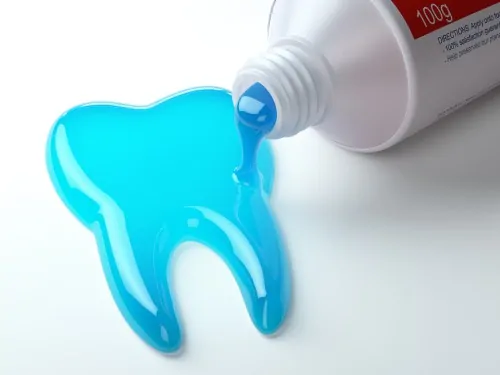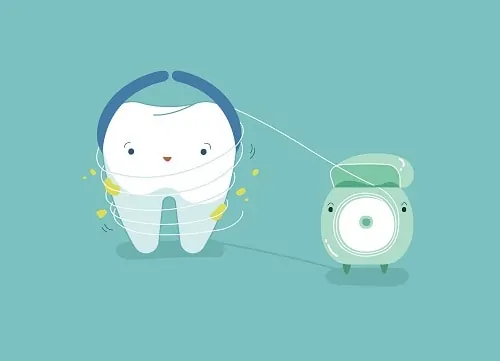Whole-Body Benefits of Good Oral Health

You may have heard the saying that the eyes are the window to the soul. While that may be true, your dentist in Douglasville wants you to know that the mouth is in fact the window to overall health. Years of research continues to show just how important oral health is to overall health and how issues with your teeth or gums could increase your risk for more severe health issues elsewhere in your body, which makes proper oral hygiene even more important.
What Oral Health Can Say About Overall Health
Your mouth can actually give your dentist in Douglasville a glimpse at what may be happening in other areas of your body. Several whole-body problems can even first show signs in the mouth before anywhere else… and before you even suspect a problem. In fact, according to the Academy of General Dentistry, more than 90% of all systemic diseases display symptoms in the mouth including:
- HIV/AIDS
- Diabetes
- Kidney Disease
- Oral Cancer
Seeing your dentist in Douglasville regularly can help catch these problems early and get you into treatment sooner.
Gum Disease & Your Health
The connection between oral health and overall health doesn’t end there and goes even deeper to show a link between gum disease and other diseases throughout the body. According to the Mayo Clinic, gum disease is often related to other health issues such as:
- Diabetes
- Cardiovascular disease
- Preterm births
- Pneumonia
- Alzheimer’s disease and dementia
Protect Your Teeth, Protect Your Health
Having good oral health clearly has whole-body benefits, so it’s more important than ever to practice good oral hygiene habits. Make sure to:
- Brush your teeth for two minutes, twice a day.
- Floss daily to remove bacteria from hard-to-reach places that brushing alone won’t reach.
- Keep sugary foods and drinks to a minimum and focus on eating a diet rich with vegetables, fruits, whole grains, and proteins.
- Avoid tobacco use.
- See your dentist every six months.
If it’s been a while since you’ve seen a dentist, we’re here to help. Our welcoming team is dedicated to caring for each and every one of our patients, no matter what. There is no judgment in our office, only genuine care and an unwavering commitment to oral and overall health. Call today to schedule an appointment.
October is National Dental Hygiene Month

Every October, the American Dental Hygienists’ Association and Colgate sponsor a month-long celebration for dental hygienists around the country. Dental hygienists are crucial members of your healthcare team and are responsible for keeping patients’ mouths (and bodies) healthy. This year, the theme for National Dental Hygiene Month is Faces of Courage, and rightfully so. Join your dentist in Douglasville as we celebrate our dental hygienists by sharing just what they do and promote how you can become one yourself.
Duties of a Dental Hygienist
Your dental hygienist plays a key role in helping your mouth stay healthy and cavity and disease-free. They’re also often the first line of defense as well as the first person you’ll meet with when you visit your dentist in Douglasville. Even though the main responsibility of a dental hygienist is to clean teeth, they also do a lot more including:
1) Cleaning Teeth – Let’s talk about the most obvious responsibility of a dental hygienist — cleaning teeth. Now, even though you may brush and floss every day, the cleaning you get from your hygienist is different than the one you get at home. Hygienists are trained to gently remove plaque and tartar buildup that a regular brushing won’t touch, which gives you a super-clean feel and super-protected mouth.
2) Learning About Your Health – But as we’ve mentioned before, your dental hygienist does so much more than clean your teeth. One of those additional duties is learning and getting to know each and every patient on a personal level. This means your hygienist will often talk with you about your oral health and overall health history, discuss concerns you may have, and review medications or ailments. Doing so allows them to both know you better and treat you better every time you visit your dentist in Douglasville.
3) Educating Patients – Our dental hygienists are passionate about teeth and are committed to doing everything they can to help patients stay healthy. They’re always quick to offer up tips on the best way to brush your teeth, how to floss, and can even tell you what products to use so you can maintain excellent oral health.
4) Focusing on Prevention – There’s a good reason we recommend a dental cleaning every six months — to prevent problems from happening in the first place. To do this, your hygienist will often apply fluoride or sealants to protect teeth from the damaging effects of acids and bacteria.
Keep in mind, different states and different regions have different rules, so some of these responsibilities can change from area to area and office to office.
How Many Years Does it Take to Become a Dental Hygienist?
Depending on the program and degree level, it takes anywhere between 2-4 years to become a dental hygienist. Dental hygienists must complete at least two years of schooling at a community college, technical school, or university. Usually a hygienist will earn an associate’s degree, but higher-level degrees are also available. After earning a diploma, hygienists are then required to take a state, local, or regional licensing test before they can practice in a dental office.
Now that you know a little bit more about all of the things dental hygienists do to keep you healthy, make sure you thank them the next time you visit your dentist in Douglasville.
Top Tips To Keep Your Family Healthy This Flu Season

It’s that time of the year again when the sounds of sneezes and sniffles, and coughs and congestion, are in the air. That’s right, it’s flu season, which can be a concerning time for all of us. At our dental office in Douglasville, we want you to know that you don’t have to suffer this year. There are some easy tips you can try to keep your family healthy all the way to spring.
Wash Those Hands
There’s a reason you’ll find posters in every bathroom stressing the importance of proper handwashing and why your dentist in Douglasville stresses washing those hands regularly — because it works! A little bit of soap and warm water can go a long way in keeping you healthy and flu-free. Make sure to wash your hands after using the restroom, touching another person, touching anything in public (think escalators and doorknobs!), and before every meal or snack. While soap and warm water work best to kill those pesky germs, alcohol-based hand sanitizer can work well in a pinch.
Clean Often
Having clean hands is one thing that can certainly help reduce the risk of catching the flu, but having a clean house is also important. Pay attention to the areas where your family spends the most time, like the bathrooms (don’t forget the toilet handles!) and kitchen. Sanitize things that are often overlooked, such as remote control, faucets, and toys. When in doubt, give it a quick wipe down with an antibacterial cleaner.
No Hands to the Face
Hands touch so many things throughout the day, and even if you’re washing them regularly, there’s still a chance germs are lingering around. In fact, the CDC states that one of the most common ways germs are spread is by touching a contaminated surface, then touching your eyes, nose, or mouth. These body parts have mucus that can easily transport germs into the body and make us sick.
Take Care of That Toothbrush
The truth is, toothbrushes can play host to all sorts of gross germs that can make you sick. But with proper care, those germs don’t stand a chance. Make sure the bristles are getting a thorough rinsing with warm water after every use to help flush bacteria down the drain (where they belong!). When it comes to storage, keep all toothbrushes in an upright position with the bristles at the top and allow them to air dry. Avoid using those little plastic toothbrush covers — they create the ultimate home for bacteria because it’s wet, cold, and dark. Keep family members’ toothbrushes separated from each other to avoid cross-contamination, and of course, never share toothbrushes.
Drink More Water
Water is the best thing for everyone to drink, but even more so during flu season. The truth is, a well-hydrated body is better equipped to fight off any infection. Try your best to have each member of your family drink at least eight, 8-ounce glasses of water a day. During flu season, if you can get them to drink a little bit more, it can only help.
Follow these tips this flu season to help keep your entire family healthy all winter long. However, sometimes pesky germs find their way inside and make us sick. If that happens, your Douglasville dentist encourages you to use sugar-free medicines to help alleviate symptoms.
Give Three Cheers for National Dental Hygiene Month

October is known for a lot of things, but it’s the one month set aside each year to give a little bit of extra love to all of the immensely talented, caring dental hygienists out there. There are so many of them across the country whose work goes unnoticed or even underappreciated each day. So we’re here to pull back the curtain and shed some light on the life-changing services they provide.
Take a few minutes with your dentist in Douglasville to give three cheers for dental hygienists and everything they do to keep you and your smile healthy.
Cheers #1 – Celebrate Their Love For Smiles
You have to admit it; someone who chooses dentistry as a career must really love teeth. If you ask any dental hygienist, we’re sure their answer will be very similar. Most dental hygienists take special classes and graduate with different training, degrees, and certifications. They don’t merely learn how to clean patients’ teeth and then send them on their way.
The American Dental Association will tell you that dental hygiene is no easy job. Hygienists are responsible for:
– Carefully examining teeth and the entire mouth for anything suspicious
– Taking a patient’s oral health history, blood pressure, and pulse
– Assessing your oral health needs and goals
– Taking precise x-rays and oral photos
– Educating patients about the best ways to care for their smile at home
– Clearing away harmful plaque and tartar from teeth to avoid decay
To get that up close and personal to smile each day takes a special dedication and a person who genuinely cares about their patients. Your Douglasville dentist will be the first to give any dental hygienist a huge high five for all the work they do!
Cheers #2 – They’re Making History
Fones School of Dental Hygiene first opened its doors in 1913, paving the way as the first school of its kind dedicated to educating dental hygienists. National Dental Hygiene Month first started being recognized in October back in 2009 courtesy of the American Dental Hygienists’ Association (ADHA) and Wrigley gum. Together, both organizations saw the need for more Americans to put a heavier emphasis on keeping their teeth healthy.
This year, there’s even more to celebrate as the ADHA is partnering with Walgreens and LISTERINE® to promote further the benefits of good oral health and the incredible, life-changing work done by dental hygienists across the nation. There’s even a new, #DoTheSwish campaign happening at participating stores where you can snap a selfie with specially-marked LISTERINE® mouthwash displays for a chance to win some sweet prizes!
Cheers #3 – It’s an Excuse for a New Toothbrush
While we genuinely appreciate all that dental hygienists do for patients, this is also a good time of year to take a look at your toothbrush. Is it starting to look a little scary? It might be time for a replacement if your bristles are frayed or breaking.
Having the right toothbrush is going to help keep your mouth and gums healthy, in turn, making your dental hygienist happy. That’s what we want this month and every month of every year! This holiday marks the perfect opportunity to celebrate the fantastic, fabulous work dental hygienists do to keep mouths healthy across the country, from big cities to small villages.
Are you need of a teeth cleaning? Contact our Douglasville dental office today by phone or online to schedule a time with your amazing dental hygienist. Don’t forget to thank them for all they do for you and your smile.
Fluoride For a Healthy Smile

When it comes to the oral health of you and your family, you may have heard about the importance of fluoride. You may have also heard a few arguments against it. At our dental office in Douglasville, we want to take the opportunity to talk a little bit about fluoride, what it is, why it’s crucial for our smiles, and yes, even discuss a few risks.
What Is Fluoride?
Fluoride is a mineral that’s found in nature, specifically in soil, water, plants, and the air we breathe. In the world of dentistry, fluoride is used to help strengthen tooth enamel and protect teeth against decay and cavities. It can also help repair early decay caused by demineralization.
Demineralization occurs when acids from bacteria and foods linger around and begin to eat away at the protective layer of enamel. But enamel isn’t the only thing affected during demineralization. Our teeth can also lose minerals such as calcium, phosphate, and fluoride. These minerals are essential to keeping our teeth tough and strong to fight off decay… so it’s important to replace them either through the foods we eat or from fluoride treatments from your Douglasville dentist.
Who Should Get Fluoride?
When you think of fluoride, you may assume that it’s only important for kids. But nearly everyone’s smile can benefit from fluoride. Your dentist in Douglasville will most likely recommend that both you and your children receive a fluoride treatment at every dental appointment to help build strong teeth and protect against cavities. These treatments are typically either a varnish, foam, or gel that are applied in the dental office.
Where to Get Fluoride?
Besides having your dental team apply a fluoride treatment, there are other ways you can help your teeth get enough fluoride. Most public water supplies have added fluoride, and it can be found in some foods you eat. There’s also fluoride in many kinds of toothpaste and mouthwash. Fluoride supplements are also available and may be recommended if you don’t have fluoridated water or if you need an extra boost of fluoride.
Is Fluoride Safe?
Fluoride is safe for children and adults in recommended amounts, which will vary based on things such as risk, need, and age. However, fluoride can be hazardous if it’s used too much. This risk is extremely low as it’s extremely difficult to expose yourself to dangerous levels of fluoride through fluoridated water, toothpaste, and fluoride treatments from your dentist. A good rule of thumb is to remember to always follow your dentist’s recommendations, don’t swallow toothpaste or mouthwash, and monitor children’s brushing habits at home.
If you’re unsure if fluoride is right for you or your family, or if you have questions about fluoride, we welcome you to call our Douglasville dental office and schedule a visit. We’re here to help!
How to Pick the Best Dental Floss

When you walk down the oral health care aisle at your local supermarket, it can quickly become overwhelming. There are just so many different types of toothbrushes, tubes of toothpaste, bottles of mouthwashes, and packets of floss to pick from. How in the world are you supposed to pick the best products for you? Don’t worry, today the team at our Douglasville dental office is here to help narrow your options for one of the most important tools in your oral hygiene toolbox — floss.
Flossing can sometimes be overlooked as a crucial part of your oral health, but the truth is, flossing every day is incredibly effective at lowering your risk for cavities and gum disease. This means that you need to choose a type of floss that you will use regularly and properly. Let’s take a closer look at the three most common types of floss recommended by your dentist in Douglasville.
Traditional Floss
The most common type of floss is the traditional string floss found in those little, compact containers. This time-tested original can work really well for many people as it’s what they first learned to floss with, so it’s comfortable to use. However, those who may have trouble using their hands or fingers may not be able to reach around each tooth or back into the molars. This is when an alternative option should be considered.
Floss Picks
Floss picks are those little plastic tools that have a small piece of floss threaded between two posts. They’re pretty inexpensive and can be just as effective as traditional floss if used properly. However, while some people may find floss picks easier to use, others find just the opposite. So essentially, there’s no real right or wrong answer when it comes to which is better. The best way to decide is to try both options and see which is easier for you to use. Keep in mind, floss picks only use a small section of floss so you may need to use a few flossers each and every time you floss.
Water Flosser
A newer and more high-tech flossing option that’s making its way into bathrooms across the country is electric water flossers. These tools are highly effective at removing plaque and bacteria, and many studies suggest that they may be the most effective of any flossing device. But they don’t come without a few potential cons. Water flossers need to either be plugged in or charged, so they aren’t incredibly convenient. They’re also larger in size so storage and traveling may pose a few complications. Lastly, they can be pricey, although they do last a long time and reduce waste.
What matters most to your dentist in Douglasville isn’t necessarily which type of floss you use, but rather that you floss regularly and properly. If you’re finding that flossing is challenging and you’re looking for a better solution, we welcome you to call our dental office in Douglasville. We’re always happy to help find the best tools for each one of our patients.



